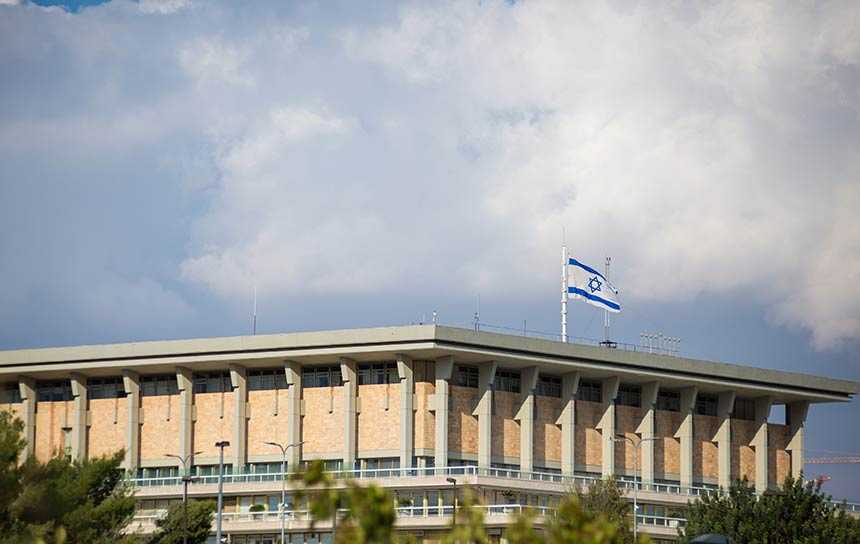

The following analysis was prepared by APCO Worldwide’s Tel Aviv team.
What happened?
Prime Minister Benjamin Netanyahu was unable to form a new coalition government with a 61-seat majority in the 120-member legislature by the deadline of May 29, 2019. The coalition talks broke down after 28 days of negotiations and a 14-day extension period that were granted by President Reuven Rivlin. The collapse of the negotiations mainly stemmed from disputes between potential coalition partners over the military enlistment of ultra-Orthodox men.
In light of these developments, the Knesset plenum approved a measure to schedule repeat elections, by a 74-45 vote, with the date set for September 17.
The Knesset vote to dissolve itself and hold repeat elections came with the backing prime minister and his right-wing Likud party. Had this measure not been approved, President Reuven Rivlin could have tasked centrist another figure with trying to form a government from among the existing Knesset – most likely the rival Blue and White party. Such a motion would have marked the first defeat for Netanyahu during his ten years of uninterrupted rule, and seriously damaged his leadership status among the Israeli public, and possibly within his own party.
Why?
Secular nationalist Yisrael Beitenu party, which holds five seats and is chaired by former Defense Minister Avigdor Liberman, conditioned the party’s participation in the government with advancing draft legislation to increase the quotas for ultra-Orthodox conscription. More broadly, Liberman’s refusal to join pointed to ongoing secular-religious tensions over the nature of the country, in which he voiced concern that the new government would advance the interests of the ultra-Orthodox in applying Jewish religious laws on the majority non-Orthodox population.
Lieberman’s demands were strongly countered by the two ultra-Orthodox parties, which together hold 16 seats, and which insisted they would only join a government that agreed to soften the terms of such legislation. Prime Minister Netanyahu had offered several compromises to both sides in an attempt to bridge the gap, but neither side was willing to compromise. Two days ahead of the deadline, the prime minister appealed to Liberman in a prime-time public address to place “the well-being of the nation above every other interest” and avoid “expensive and wasteful” repeat elections. In the final hours before the deadline, the prime minister had even desperately attempted to court members of the parties from the Center and Left, offering them a number of ministerial positions and other far-reaching concessions.
Prime Minister Netanyahu’s political maneuverability was also harmed by the fact that he had conditioned potential partners to agree to two controversial pieces of legislation. The first piece of legislation aims to reform the immunity laws for prosecuting Knesset members, which could weaken the ability of the attorney general to prosecute him on charges of fraud and corruption in three criminal cases. The second was a bill that would allow the Knesset to overturn High Court’s invalidation of legislation that it deemed unconstitutional through a simple majority vote, dubbed the “override clause.”
What’s next?
The decision to disperse the 21st Knesset and hold new elections was unanticipated, with the outcome only finalized 30 minutes before the deadline. The measure to hold repeat elections amid a failure to form a coalition government is unprecedented in Israel’s 71-year history. The existing government and its ministers will continue to serve in their capacities on an interim basis, until the formation of the next government. This means that Prime Minister Netanyahu will continue to also serve as minister of defense, while Moshe Kahlon and Eli Cohen of the Kulanu party will maintain their respective positions as ministers of finance and the economy.
Ahead of the September 17 elections, the Central Elections Committee will set deadlines for parties to register and present their list and ranking of candidates. Already there have been indications of political realignment and budding electoral alliances. The Kulanu party has agreed to run with Likud on a joint list in the upcoming elections, while Netanyahu may face internal challenges to his leadership of the Likud, especially with the pre-indictment hearing pending.
The Arab parties, who ran in two different joint lists in the April elections – Hadash-Ta’al and United Arab List-Balad – are considering running as one large bloc, as they did in the 2015 elections. Hadash Chairman Ayman Odeh expressed concern that the two separate blocs had led to lower voter turnout in April, and therefore the new joint list can be expected to mobilize for a strong turnout among the Arab community on September 17.
The newly scheduled elections have already drawn criticism by various stakeholders over the associated price tags. The Ministry of Finance estimates that the new election cycle will cost the government no less than NIS 475 million (USD 132 million). Moreover, Election Day is a national holiday: the lack of work is forecast to cost the economy about NIS two billion (USD 552 million).
Following the September 17 election date, the president will task the most recommended Knesset member – traditionally the leader of the party receiving the most seats – with forming the next government. Given that a period of national holidays occurs from October 1-22, it is possible that the next government could only be finalized in late November 2019.
Implications
Pressure to Raise Taxes, Secure Revenue: The Knesset was first dissolved in late December 2018, in anticipation of the April elections. In light of the current situation, the Knesset may only reconvene in November, resulting in almost 11 months total of no legislative activity, including approving the government budget for the next year. With Israel’s growing deficit forecast to further increase in the months without a government in place, the next government may find it necessary to fill in empty coffers and raise corporate taxes, VAT, and other tax instruments to generate the needed revenue. Momentum for such tax hikes could be informed by a growing chorus of prominent financial organizations supporting these measures to trim the deficit, including the Bank of Israel, the IMF, and the OECD. Businesses, therefore, may eventually find themselves facing a less welcoming tax and regulatory climate due to the political paralysis.
Business as Usual in the Interim, Low Volatility: While the country prepares for new elections, the business climate is expected to remain favorable, as no major policy shifts can occur without the Knesset in session. The economy grew by 5.2% in the first quarter of 2019, while Israel was in an elections season and the legislature was shut down, led by an ever-strong tech industry and rising consumer spending. Taking this into account and the broader examples over the past two decades of Israel’s economy largely rebounding after much more volatile security situations, there is little reason to expect that the business sector will see decreased activity in the short-term.
Trump Peace Plan’s Political Components Stalled, Economic Ones Unaffected: The Trump administration is to hold an “economic workshop” in Bahrain on June 25-26, in which it is expected to rollout economic elements of its Israeli-Palestinian peace plan. Given the gathering’s relative lack of focus on Israel – addressing Arab states’ investments in the Palestinian economy – and avoidance of political processes, it is unlikely to be affected by the Israeli political stagnation. However, a launch of Trump plan’s political dimensions could be halted until the next Israeli government is assembled.
Netanyahu Dealt Domestic Blow, But Not Necessarily Beaten: The inability to form what would be his fifth government may harm Prime Minister Netanyahu’s domestic credibility, though he is still likely to maintain a strong base of support within the Likud party and right-wing voters on his security and diplomacy credentials. However, in courting potential coalition partners ahead of the next elections, the Israeli premier will likely be compelled to abandon support for the “override” and “immunity” legislative acts. In doing so, he thereby exposes his political future to his legal charges, which as they progress into the courtroom could lead to calls within the Likud for a change of leadership.
Netanyahu Weakened Internationally: Prime Minister Netanyahu’s attributed successes as a keen strategist and statesmen in projecting Israel’s geopolitical power and delicately balancing a network of international alliances with many prominent world leaders – especially President Trump, President Putin, and Prime Minister Modi – may be called into doubt with his failure to form a coalition government. Given the political uncertainty facing Netanyahu, leaders may be hesitant to invest in deepening their strategic relations with Israel, while Arab Gulf states may refrain from new public overtures of working with Israel under a seemingly weakened leader.


